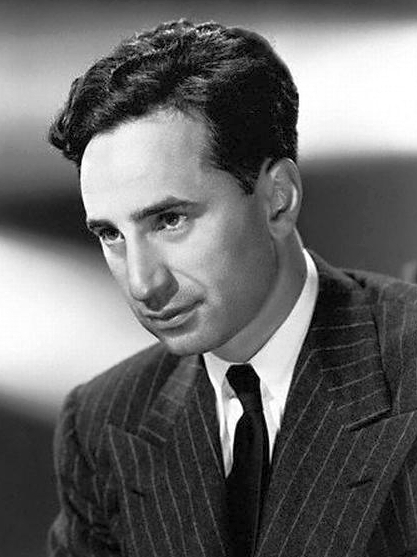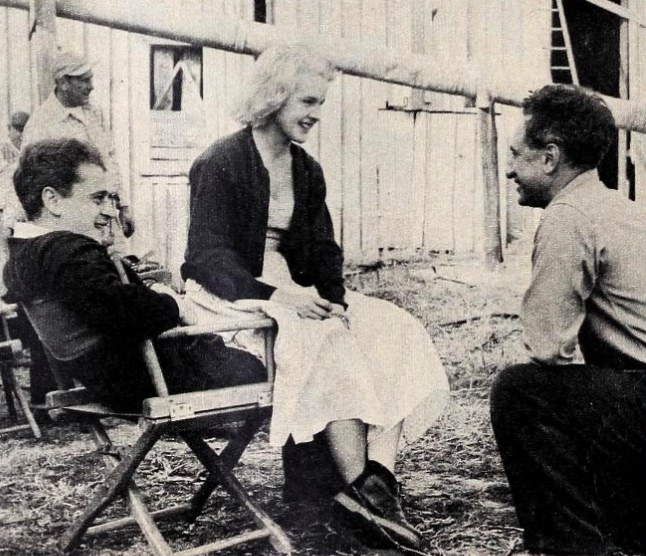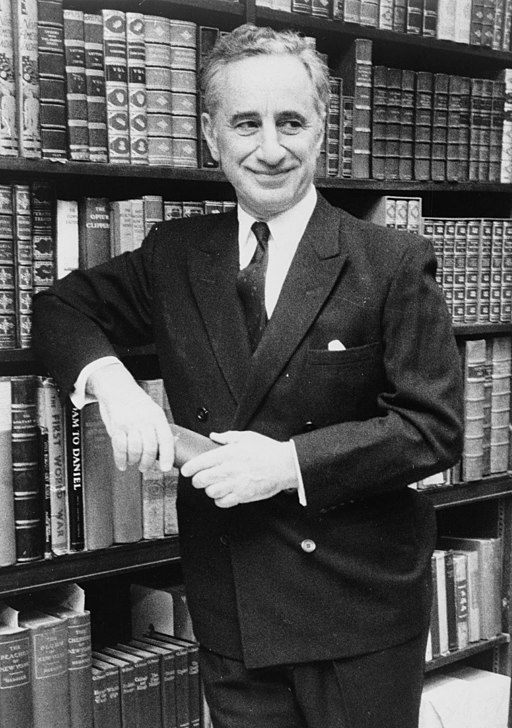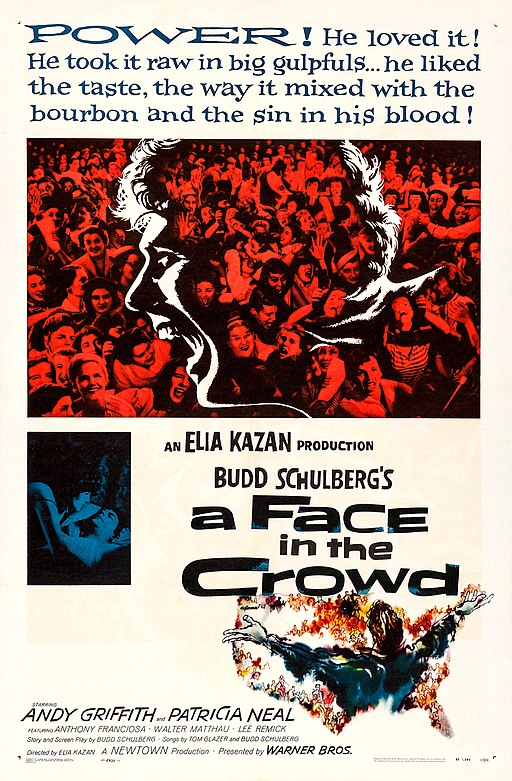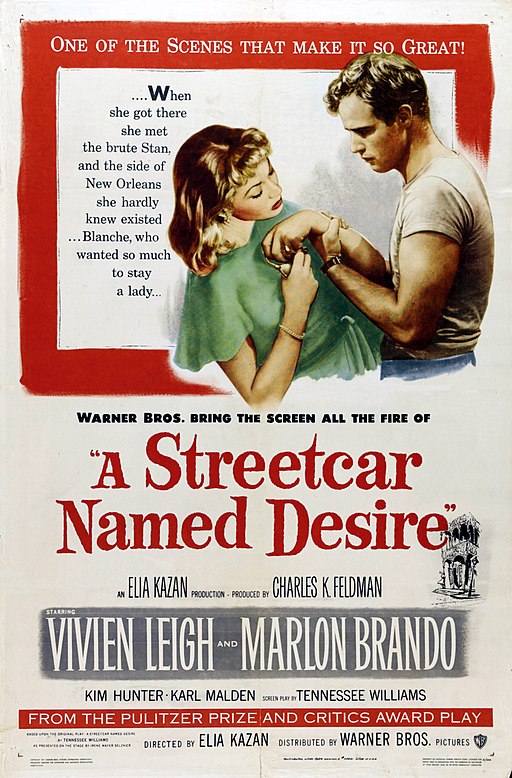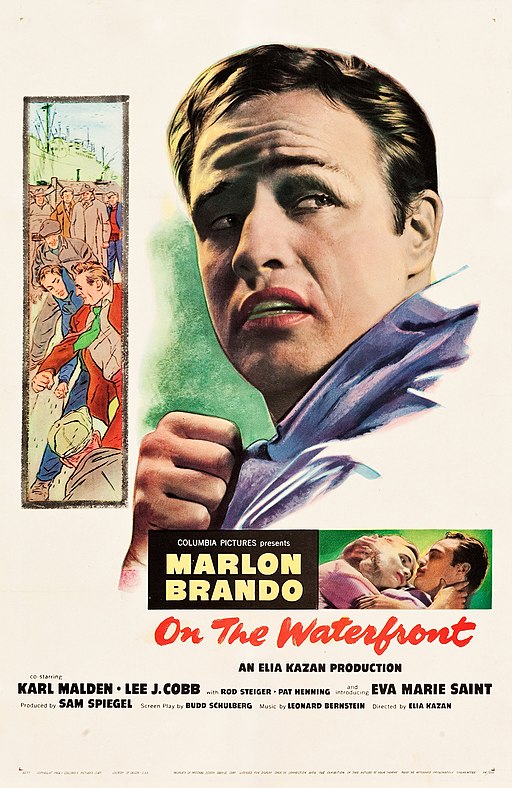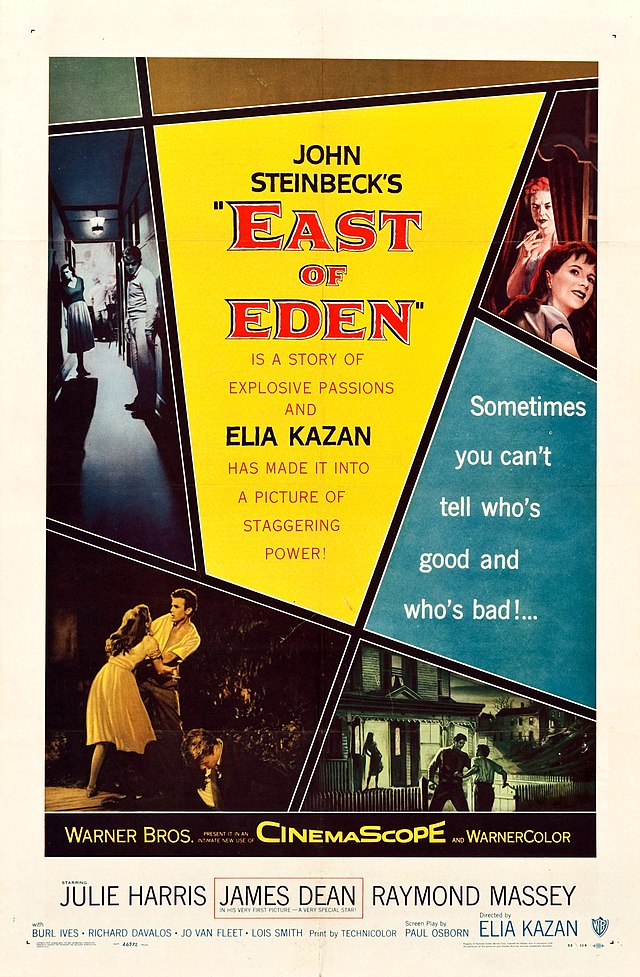Elia Kazan
back| Full Name | Elia Kazanjoglou |
| Born | September 7, 1909 |
| Birthplace | Constantinople, Ottoman Empire (now Istanbul, Turkey) |
| Died | September 28, 2003 |
| Buried | His ashes are buried at the family's private property in Newton, Connecticut |
| Married to | Molly Thacher (married 1932–1963), with whom he had four children - Barbara Loden (married from 1967 until her death in 1980), with whom he had one child - Frances Rudge (married in 1982 until his death). |
| Children | Judy, Chris, Nicholas, Katharine, and Marco |
| Notable films | A Streetcar Named desire (1951) - On the Waterfront (1954) - East of Eden (1955) - A Face in the Crowd (1957) - Splendor in the Grass (1961) |
Elia Kazan
The Ingenious “Gadge” of Classic Cinema
Elia Kazan's work was not without controversy, particularly his decision to testify before the House Un-American Activities Committee (HUAC) during the McCarthy era, where he named former colleagues as Communist Party members.
This action created a lasting rift within the artistic community, but it did not diminish the significance of his contributions to film and theater. Kazan's legacy is complex, marked by his groundbreaking directorial achievements and his controversial political decisions.
Elia Kazan was often referred to as "Gadge" by friends and colleagues, a nickname said to reflect his technical skill and directorial prowess, akin to a handy gadget.
Related
Elia Kazan (1909 – 2003)
Biography and Overview of his Directing Career
Elia Kazan, born Elia Kazanjoglou on September 7, 1909, in Constantinople (now Istanbul), Ottoman Empire, was a towering figure in the American entertainment industry, whose work as a director both in film and theater has left an indelible mark on the narrative and aesthetic dimensions of both mediums. His journey from immigrant roots to becoming a central figure in shaping American cultural life is a testament to his extraordinary talent, vision, and the complexities of his personal and professional life.
Early Life and Education
Kazan's family emigrated to the United States in 1913, escaping the turbulent political climate of the Ottoman Empire for a chance at a new life in New York City. Growing up in a Greek immigrant family, Kazan was imbued with a strong work ethic and a deep appreciation for storytelling, which would later influence his career. He attended Williams College in Massachusetts, where he was exposed to theater, and later the Yale School of Drama, laying the groundwork for his future in directing.
Theater Career
Kazan's career in theater began in the 1930s, where he initially worked as an actor before moving into directing. His association with the Group Theatre, a collective that aimed to bring socially relevant and naturalistic performances to the stage, deeply influenced his approach to theater. Kazan's knack for drawing out intense, emotionally authentic performances became his hallmark. In 1947, he co-founded the Actors Studio, an organization that became synonymous with the "method acting" technique, training generations of actors in a style that emphasized emotional truth in performance.
Film Career
Transitioning to film in the 1940s, Kazan quickly established himself as a director who could translate his knack for eliciting powerful performances onto the big screen. His films often explored themes of personal and social integrity, as seen in "Gentleman's Agreement" (1947), which tackled anti-Semitism, and "On the Waterfront" (1954), a story of corruption and redemption that won eight Academy Awards, including Best Picture and Best Director for Kazan.
Perhaps his most enduring contribution to film was his ability to discover and nurture new talent, including Marlon Brando, James Dean, and Warren Beatty, actors who became icons of American cinema under his direction. Kazan's films, including "A Streetcar Named Desire" (1951) and "East of Eden" (1955), are celebrated for their emotional depth and realism, qualities that Kazan expertly coaxed out of his performers.
Personal Life
Kazan's personal life was as complex and compelling as his films. He was married three times and had five children. His relationships and personal experiences often influenced his creative work, infusing his projects with a sense of authenticity and emotional intensity. Kazan was a figure of controversy, particularly for his testimony before the House Un-American Activities Committee (HUAC) in 1952, where he named former colleagues as Communists. This decision haunted him professionally and personally, creating a divide between him and many in the artistic community.
Legacy
Elia Kazan died on September 28, 2003, leaving behind a body of work that continues to influence filmmakers and actors. His legacy is a blend of artistic genius and moral complexity, embodying the struggles, contradictions, and triumphs of the American spirit. Kazan's films and theatrical productions remain vital studies in character, emotion, and the enduring power of storytelling. Despite the controversies, Kazan's impact on the arts endures, a testament to his visionary approach to directing and his profound understanding of the human condition.
Honorary Oscar for Elia Kazan in 1999:
Analysis of Elia Kazan’s Directing Style:
Elia Kazan's directing style is renowned for its emphasis on emotional depth, psychological complexity, and social realism, making him one of the most influential figures in both American theater and cinema. Kazan's approach to storytelling and character development was deeply rooted in his background in theater and his work with the Actors Studio, where he became a proponent of Method Acting. This background influenced his cinematic works in several key ways:
Emphasis on Actor Performances
Kazan was known for his ability to elicit groundbreaking performances from his actors. He believed in the power of the actor to bring depth and authenticity to the screen, often working closely with them to explore the psychological motivations behind their characters. This approach led to career-defining performances for actors like Marlon Brando, James Dean, and Natalie Wood. Kazan's focus on the internal emotional life of his characters helped to popularize Method Acting in cinema.
Psychological Complexity and Realism
Kazan's films often delve into the psychological complexities of their characters, exploring themes of identity, morality, and the human condition. His background in the socially conscious Group Theatre influenced his interest in characters who grapple with moral and ethical dilemmas, often against the backdrop of larger societal issues. This is evident in films like "On the Waterfront," where the protagonist confronts corruption and his own complicity, and "A Streetcar Named Desire," which examines mental instability and the destructiveness of desire.
Social and Political Themes
Kazan's work frequently addressed social and political themes, making him a pivotal figure in the development of socially conscious American cinema. Whether tackling anti-Semitism in "Gentleman's Agreement," exploring the impacts of industrialization and corruption in "On the Waterfront," or addressing racial and sexual tensions in "Pinky" and "Baby Doll," Kazan's films often prompted audiences to confront uncomfortable social realities.
Use of Cinematic Techniques
Kazan's directing style also extended to his innovative use of cinematic techniques to enhance storytelling. He had a keen eye for location shooting, utilizing real environments to ground his narratives in a palpable sense of place and realism. His use of visual composition, lighting, and camera movement worked in concert with his actors' performances to underscore the emotional and thematic undercurrents of his films.
Collaboration with Writers and Cinematographers
Kazan was known for his collaborative approach, working closely with writers to ensure that scripts had the emotional depth and complexity he sought in his narratives. He also collaborated with talented cinematographers to craft the film's visual style in a way that complemented its thematic content and emotional tone.
Controversy and Critique
Kazan's career was not without controversy, most notably his decision to name names before the House Un-American Activities Committee (HUAC) in 1952. This decision had a lasting impact on his reputation and colored subsequent interpretations of his work, with some critics and audiences viewing his films through the lens of his HUAC testimony.
Memorable Quotes from Elia Kazan:
On Directing and Art:
- "The writer, when he is also an artist, is someone who admits what others don't dare reveal."
- "The motion picture is the art form of the 20th century."
On Actors and Acting:
- "Whatever I do is always related to the human being, to human beings, to their feelings, to their actions."
- "I think there should be a new word for happiness. Being a director is being a watcher. We have a lot of egos in the room, and part of directing is just letting those egos be present, but not let them run the show."
On His Work and Legacy:
- "I was an outsider... but I was also sympathetic with people that were struggling to get up, because I struggled to get up."
- "If you don’t say what you want, what’s the sense of being in the arts?"
On Life and Personal Beliefs:
- "Life is not about finding yourself. Life is about creating yourself."
- "I've lost many of my best friends... I'm going to satisfy myself now, not the critics, not even my friends."
On His Approach to Film:
- "A good director creates an environment, which gives the actor the encouragement to fly."
Reflecting on His Career:
- "In the theater, I've found that, in general, reaction and laughter come easier than tears. In movies, tears come easier than laughter."
Awards and Recognition:
Academy Awards (Oscars)
- 1948: Won Best Director for "Gentleman's Agreement"
- 1955: Won Best Director for "On the Waterfront"
- 1955: "On the Waterfront" also won Best Picture (Kazan produced the film)
- 1999: Received an Honorary Award for his lifetime achievements in film and theater
Golden Globe Awards
- 1948: Won Best Director for "Gentleman's Agreement"
- 1955: Won Best Director for "On the Waterfront"
Cannes Film Festival
- 1955: "East of Eden" was nominated for the Palme d'Or
Directors Guild of America (DGA) Awards
- 1952: Nominated for Outstanding Directorial Achievement in Motion Pictures for "A Streetcar Named Desire"
- 1955: Won Outstanding Directorial Achievement in Motion Pictures for "On the Waterfront"
- 1957: Nominated for Outstanding Directorial Achievement in Motion Pictures for "East of Eden"
- 1987: Received the D.W. Griffith Award, the DGA's highest honor
Tony Awards (Theatre)
- 1947: Won Best Director for "All My Sons"
- 1949: Won Best Director for "Death of a Salesman"
New York Film Critics Circle
- 1947: Won Best Director for "Gentleman's Agreement"
- 1954: Won Best Director for "On the Waterfront"
Berlin International Film Festival
- 1955: "On the Waterfront" won the Silver Bear
Other Honors and Recognition
- Kazan's work in theater also earned him critical acclaim, including multiple Tony Awards for his direction of plays such as Arthur Miller's "All My Sons" and "Death of a Salesman."
- In addition to his awards for specific works, Kazan's impact on film and theater was recognized through lifetime achievement awards and honors from various organizations, reflecting his significant contributions to the arts.
Movies Directed by Elia Kazan:
1940s
- "A Tree Grows in Brooklyn" (1945): Based on the novel by Betty Smith, this film tells the story of a young girl growing up in a poor but loving family in early 20th-century Brooklyn.
- "Sea of Grass" (1947): A drama set in the American Southwest, focusing on a cattle rancher (played by Spencer Tracy) who battles homesteaders and his own wife's (played by Katharine Hepburn) desire for a different life.
- "Boomerang!" (1947): A film noir about a prosecutor who fights to prove the innocence of a man accused of murder, challenging corruption and political pressure.
- "Gentleman's Agreement" (1947): Starring Gregory Peck, this film tackles anti-Semitism by telling the story of a journalist who pretends to be Jewish to research an exposé on bigotry in New York City.
- "Pinky" (1949): A drama about a light-skinned African American woman who passes for white but struggles with her identity and racism after returning to her grandmother's home in the South.
1950s
- "Panic in the Streets" (1950): A public health official and a police captain race to stop a bubonic plague outbreak in New Orleans after a murder victim is found to be carrying the disease.
- "A Streetcar Named Desire" (1951): Adapted from Tennessee Williams' play, this film captures the mental and emotional decline of Blanche DuBois, who moves in with her sister Stella and brutish brother-in-law Stanley Kowalski in New Orleans.
- "Viva Zapata!" (1952): A biographical film starring Marlon Brando as Mexican revolutionary Emiliano Zapata, focusing on his rise from peasant to revolutionary leader.
- "Man on a Tightrope" (1953): Set in post-war Czechoslovakia, this film follows a circus owner struggling to escape to the West amidst Communist oppression.
- "On the Waterfront" (1954): This iconic film features Marlon Brando as Terry Malloy, a former boxer turned longshoreman who confronts union corruption on the docks.
- "East of Eden" (1955): James Dean stars in this adaptation of John Steinbeck's novel, a story of a troubled young man seeking his father's love in California before and during World War I.
- "Baby Doll" (1956): A controversial comedy-drama that centers on a childlike bride and her husband's rivalry with a business competitor, leading to scandal and seduction.
- "A Face in the Crowd" (1957): A film about a drifter who becomes an overnight media sensation, only to abuse his newfound power, exploring themes of celebrity, influence, and corruption.
- "Wild River" (1960): Set in the 1930s, this film tells the story of a Tennessee Valley Authority official who encounters opposition from locals when trying to purchase land for a dam project.
1960s
- "Splendor in the Grass" (1961): A drama about the sexual repression and mental breakdown of a young woman in the 1920s, starring Natalie Wood and Warren Beatty.
- "America, America" (1963): A personal film for Kazan, telling the story of a young Greek man who emigrates to the United States in the late 19th century, based on Kazan's own uncle's experiences.
- "The Arrangement" (1969): Based on Kazan's own novel, this film explores the mid-life crisis of a successful but unhappy advertising executive.
1970s
- "The Visitors" (1972): A drama about a Vietnam War veteran whose life is disrupted when two former soldiers, whom he had betrayed, visit him.
- "The Last Tycoon" (1976): Adapted from F. Scott Fitzgerald's unfinished novel, this film delves into the life of a young and successful film producer in Hollywood, reflecting on the illusions of the American Dream.

